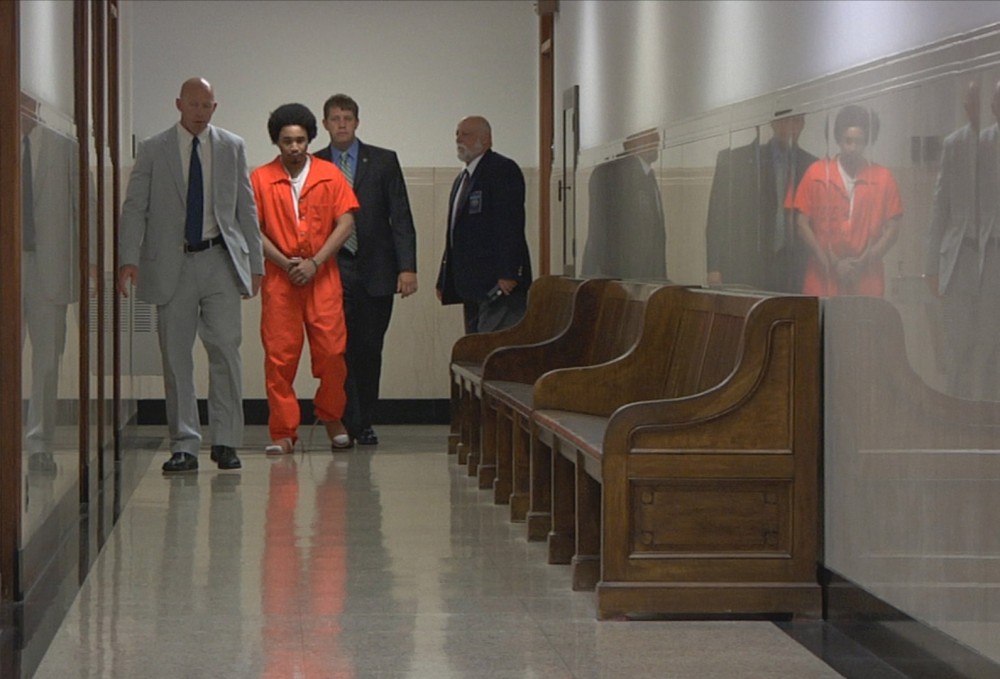The “war on drugs” is a term that I can remember since I was a kid, mostly from the “this is your brain on drugs” commercials. In principle, this is a very noble concept that should reap solid rewards; in practice, it appears the movement creates more systemic problems than it solves. Director Eugene Jarecki started out wanting to show how drugs ruined a family close to his own; instead, he uncovers perhaps some of the biggest misconceptions and core issues of the drug problem in the United States. It also helps that he hooked in the creator of one of the best dramas of all time, David Simon (The Wire).
Jarecki started out asking about how drug abuse hurt his Nannie Jeter’s family (her sons were imprisoned or died too young). He also ties in other stories: an Iowa Judge who mostly handles drug cases, residents of the projects involved in the drug trade, users and dealers imprisoned for their possession (not necessarily use) of their brand of drug, prison guards dealing with the incarcerated, police officers on the drug beat, and historians with historical perspective on drug use. These other stories help create a larger perspective around the institutions that have been built around the drug industry and how the mindset of Americans needs to stop seeing the extermination of drug use as the core issue and the rehabilitation of people as a better use of the nation’s resources.
As a movie, The House I Live In works because of general movie patterns. Behaving mostly like a thriller and mystery, Jarecki uses each person to give the audience insight into the different players in the drug game. He also curveballs the audience into thinking the movie is only going to be about the effect of drugs on people’s lives. Once the historian (Richard Lawrence Miller) enters the picture, The House I Live In shifts into a study of how the “abuse” of drugs has previously been a guise for the groups in power to remove those deemed unnecessary for society from society (this is also a curveball, initially, the historical facts pointed to race issues mostly). By showing repeated historical trends plus facts about how drug use has remained unchanged despite the best efforts of all parties involved, The House I Live In changes course in its final act: it argues politicians and lawmakers have created a system designed to imprison subsets of the populace and not solve the bigger problem of rehabilitating and reforming these parts of society deemed unnecessary. The House I Live In can stand alongside other great documentaries (Hoop Dreams) that start out with a small idea and eventually evolve into a conversation starter about a broader concept.
Like any good documentary as well, The House I Live In has its share of gotcha facts and wow moments. I was totally unaware of mandatory minimum sentences of multiple years for drug arrests; I was incensed that crack cocaine has 100 times more weight than injectable cocaine (so 1 ounce of crack = 100 ounces of regular cocaine in the law’s eyes?), and I was totally unaware of the pattern of drugs and racism across so many ethnicities and how we have become the most jailing country in the world. What makes The House I Live In’s shock value hit harder than other documentaries is the fact that it is based in facts alone and weaves into the overall story. This isn’t someone lighting a faucet on fire (which can be argued), these are real laws that are sometimes arbitrary in the way they were enacted, thus showing how systemic the war on drugs has become.
The House I Live In is a powerful showcase of the many facets of the world of drugs, from the front lines to the policy makers. The disconnect between those who create laws and those who have to deal with the consequences of the laws is a real concern raised by Eugene Jarecki and his narrator/filler David Simon. The House I Live In does what great documentaries do by getting people interested in the topic and hopefully creating interest among those not directly involved in the issue. I know I feel more enlightened and fired up, I can only hope others (since the incarcerated cannot create policy) who have a voice will start using it soon.

